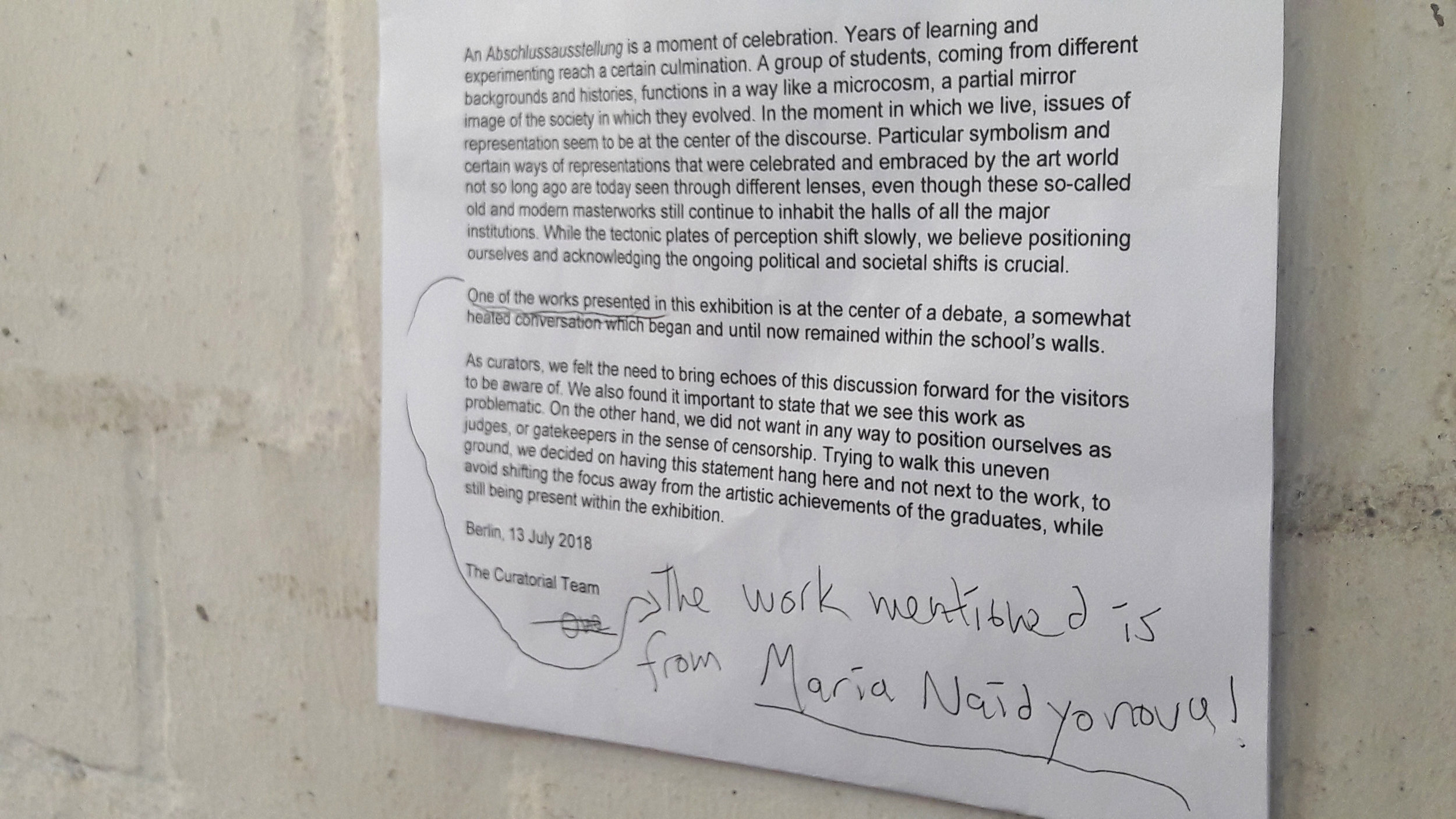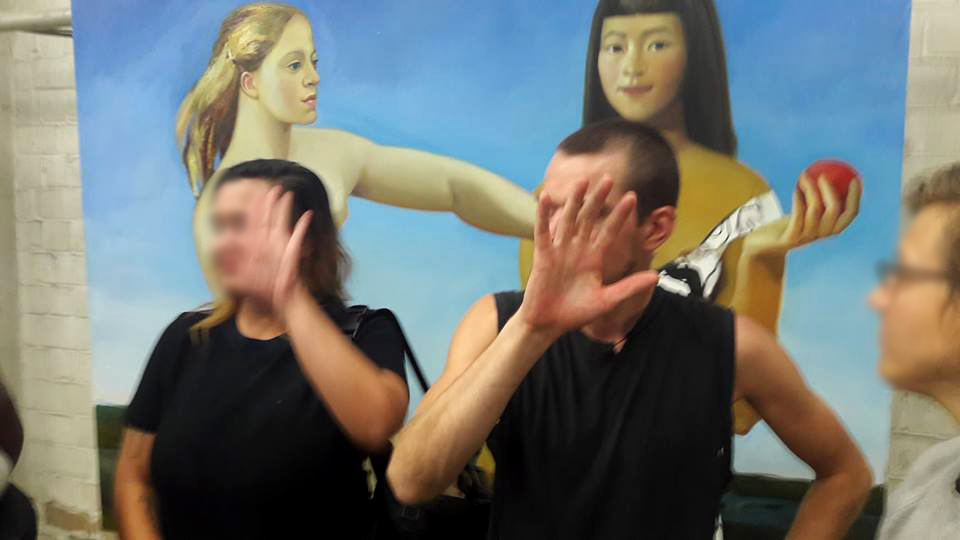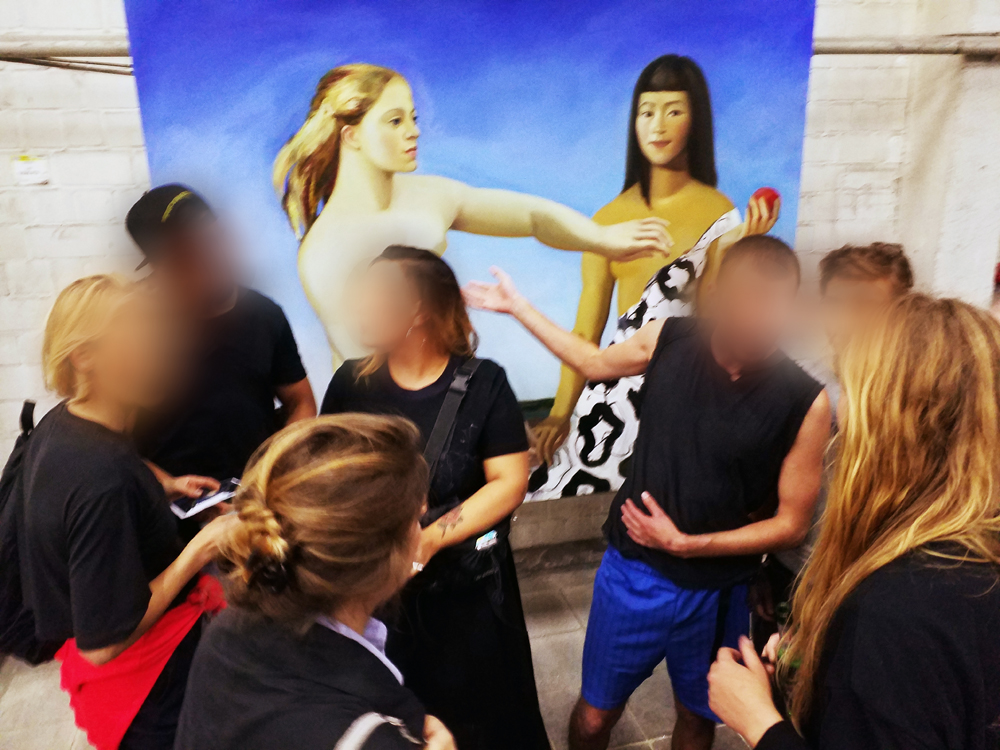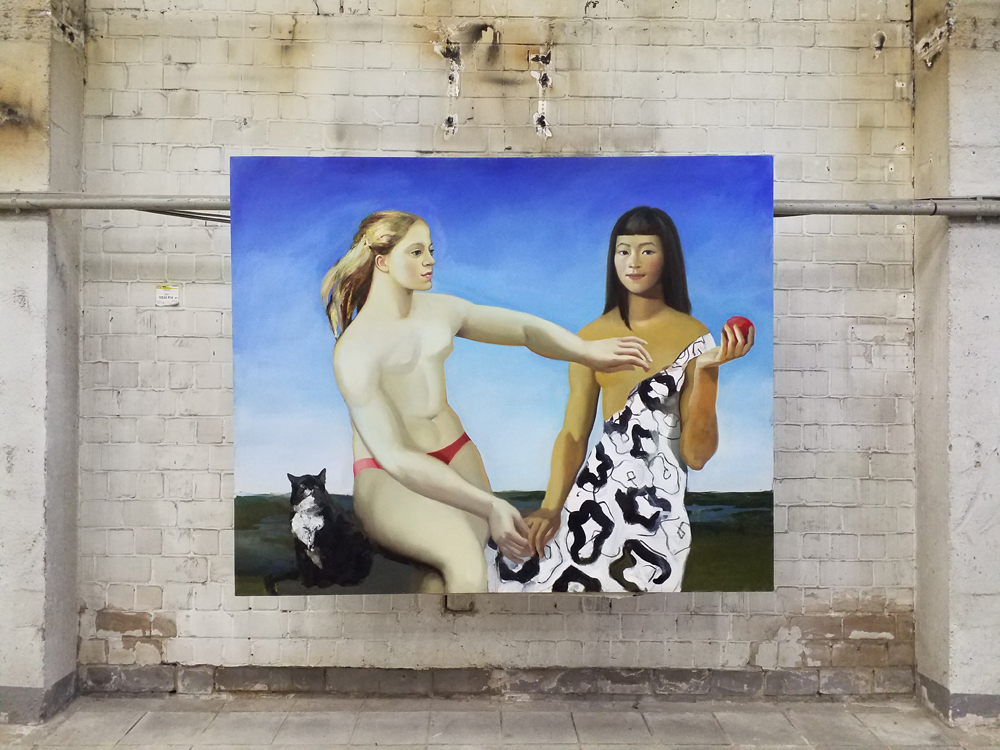“Defying Currents” Group Show
Last Friday, as part of the Weissensee Kunsthochschule's Graduate show, "Defying Currents," artist Maria Naidyonova presented two works featuring duos of female semi/nudes. For several hours, protestors clad in black blocked viewers from encountering her piece, "The Game," while also keeping their burning cigarettes a few centimeters from the work. It was a threatening environment which caused confusion and a lot of stress for show attendees, the artist and her supporters.
No one has taken responsibility, but viewers wondered just what the protestors were against. Many thought it was because of the subject matter. In any case, an act of censorship was enacted that went on until after the lights were turned off and the show was being cleared for the night.
Curators of "Defying Currents," labeled the work(s) "problematic." All in all a strange day for arts in Berlin.
About “The Game”
A painting by Maria Naidyonova
In her large-scale figurative work, “The Game,” Maria Naidyonova makes an offer to viewers which practically cannot be refused. Loaded with art historical and literary references, “The Game” starts off simply enough before spinning into almost infinite perspectives that reveal as much about the viewer as the painting itself.
It’s a beautiful day in a utopian setting. Two women play with each other happily while their kitten looks on. One white, one Asian, the two figures laugh and smile easily, tempting viewers with an apple offering entrance into “The Game.” Take a bite. Is it the end of Eden? Or is it the birth of knowledge? Both figures seem to know how you feel, but like Alice in Wonderland, it’s only after ingesting the magic that you experience yourself.
Notions of a post-racial, lesbian/gay utopia have been raised, while others have seen colonization of Asian women by Whites. Both perspectives may be valid, but is it the artist’s intent to lecture about a particular point of view? Or is the true intent to reveal what’s already latent in each individual viewer? Is it global or is it personal? Is that even the point?
In the current climate of “fake news” and polarized realities, “The Game” reminds us that yin and yang BOTH exist. Every perspective justifies its opposition. Thus, “The Game” supports each stance while denouncing intolerance and lack of empathy. Like every beautiful work throughout history, “The Game” is ultimately about balance and how you stand on your own in an ever-shifting world.
Leo Kuelbs



